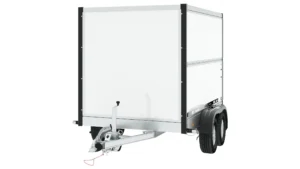Revolutionizing Stone Material Handling with Advanced Rough Terrain Forklifts
2025-07-15 05:05:28
The rugged nature of stone material handling requires specialized equipment that can withstand harsh conditions while maintaining operational efficiency. Rough terrain forklifts are engineered to tackle these challenges, featuring reinforced frames, high-traction tires, and powerful engines. Unlike standard forklifts, these machines are designed to operate on uneven, muddy, or rocky surfaces, making them ideal for quarries, construction sites, and outdoor storage yards.
One of the key advantages of rough terrain forklifts in stone material handling is their enhanced load capacity. These machines can lift and transport heavy stone blocks, pallets, and slabs with ease, minimizing manual labor and reducing the risk of workplace injuries. Advanced hydraulic systems ensure smooth lifting and precise positioning, even when dealing with irregularly shaped stone materials. Additionally, the stability provided by wide wheelbases and heavy-duty suspension systems prevents tipping, a critical safety consideration in rough terrain operations.
Durability is another critical factor in rough terrain forklifts for stone material handling. Manufacturers incorporate corrosion-resistant materials and reinforced components to withstand abrasive dust, moisture, and constant vibration. For instance, heavy-duty steel plating protects vital engine and transmission parts from damage caused by falling debris or accidental impacts. Furthermore, modern models often include sealed electrical systems to prevent malfunctions in wet or dusty environments, ensuring uninterrupted productivity.
Technological advancements have further optimized rough terrain forklifts for stone material handling. Many models now feature telematics systems that provide real-time data on fuel consumption, maintenance needs, and operational efficiency. GPS tracking and remote diagnostics enable fleet managers to monitor equipment performance and schedule preventive maintenance, reducing downtime. Some high-end models even incorporate automated load-sensing technology, adjusting hydraulic pressure based on the weight and distribution of stone materials for safer handling.
In conclusion, rough terrain forklifts have revolutionized stone material handling by combining power, durability, and advanced technology. Their ability to operate in challenging environments while maintaining high efficiency makes them a vital asset for industries dealing with heavy stone loads. As manufacturers continue to innovate, these machines will only become more indispensable in optimizing productivity and safety in rugged worksites.








